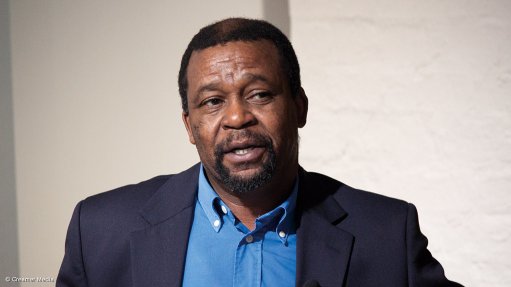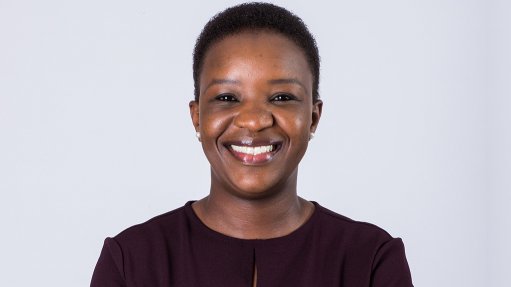Franchisors bullish about growth, but certain areas remain a worry
Franchisors’ optimism about business growth continues to strengthen, and the expectation that turnover will grow in the next financial year is almost unanimous – from 81% in 2018, to 89% in 2019 to 98% in 2023 – the Franchise Association of South Africa’s (Fasa's) eighth independent survey, titled ‘The South African Franchisor Market August 2023’, sponsored by Absa, shows.
However, despite the optimistic outlook for the future, the number of franchisors that embarked on a rebranding/revamping/upgrading exercise continued to decline.
The survey was undertaken among franchisors, after a hiatus of four years, to assess the contribution of the franchise sector to the South African economy in terms of gross domestic product (GDP), business establishment, creation of employment and the identification of key franchise practices.
In a webinar presenting this year’s results, Research EQ quantitative research and governance head Margaret Constantaras outlined a key difference between the compositions of this franchisor sample compared with the one from 2019.
“In 2019, 167 franchisors participated in interviews, predominantly consisting of small to medium franchises. In 2023, the number of participating franchisors increased to 304, and the sample included 15% large franchises with 200-plus outlets and a further 22% of medium franchises with 51 to 200 outlets. As a result, the findings in 2023 may differ in some areas from those in the previous four years.”
Fasa chairperson Maria D’Amico posited that, in 2019, there was a reluctance from franchisors to participate in the survey owing to the economic challenges they were facing then, whereas now, after the inevitable upheavals from Covid-19 restrictions, the riots, floods and increased loadshedding, brands were keen to be part of the analysis that could give them perspective of the past and strategies for mitigation for the future.
For this year’s survey, time in business, namely the time that the franchise system has been operating since first signing their first agreement, showed that three in four franchises fell into the more experienced range of 10-plus years, with the average age of the business being 21 years – which is posited to show the resilience and stability of the franchise sector in South Africa to provide long-term investment opportunities.
The number of franchise systems dropped from 813 in 2019 to 727 in 2023. This was attributed to the disruptions of the past four years, which put the brakes on new concepts coming on line, but could also be owing to the closing of smaller fledgling concepts that could not get off the ground during the pandemic.
The number of franchise outlets was grossed up, owing to the greater franchisor sample, especially of large franchises with 200-plus outlets, to represent 68 463 franchises, reflecting the increased number of large franchisors participating in the survey.
As a result, the sector’s contribution to the country’s GDP rose from 13.9% to 15% of the total South African GDP of R6.660-trillion in 2022, which is said to indicate that those remaining systems were resilient and strengthened their market position.
The estimated turnover generated for this year was R999-billion, a 36% increase over the 2019 figure of R734-billion, again reflecting the increased number of large franchisors participating in the survey.
This amount does not include revenues from listed companies operating in the franchise market as these listed companies did not participate in the survey and are dealt with in a separate section of the report.
Fluctuation in the number of business units showed the net number of stores opened in 2023 is 2.9, which is the sum of 3.1 stores opened less 1.2 stores closed, with 1.4 stores relocated.
The general feeling was that while turnover and revenue growth were sought across the board, store growth was not on the immediate radar for most franchisors during this turbulent time.
In terms of ownership demographics, the average percentage of system ownership by previously disadvantaged individuals improved considerably in the last four years from 20% in 2019 to 48% in 2023, with black ownership showing an increase of 10%, almost double what it was previously.
Ownership by Indians and coloureds tripled overall (7% to 18% and 2% to 9% respectively).
A concomitant decrease though was noted among white franchisors, from 80% to 42%. It was hypothesised that this could be a reflection of the reticence of this entrepreneurial group to launch new systems amid continued failed infrastructure.
Franchisee ownership has also changed significantly in the last four years in terms of the franchised outlets, with black ownership at 18%, Indian ownership at 17%, coloured ownership at 8% and white ownership at 57%.
Female ownership remained steady at 30% this year, possibly owing to the multiple roles women had to play over the past four years, especially during Covid-19, which may have restricted their entrepreneurial ambitions.
Constantaras emphasised that this was one of the areas that required improvement, as the number remained quite low and needed to be bolstered. Another area that also requires work is the participation of differently abled people.
The franchise industry accounts for an estimated 4.7% of employment in the country, which translates into an estimated 471 233 employees. Of those, 51% are black staff; 12% are coloured staff; 12% are Indian staff and 25% are white staff.
Almost all respondents, and especially those in the food sector, expressed concern that the country was facing a deepening crisis that was impacting all areas of the economy – owing to ongoing and escalating loadshedding which had a snowball effect on everything from food security to logistics to service delivery – with very little done by the government to mitigate this.
Fasa CEO Fred Makgato believes the only way to avoid an impending disaster in South Africa is for the government to deal with loadshedding and to recognise that it is the businesses that are keeping the economy going.
“On the back of such a strong survey of the franchising sector, that is prepared to safeguard its position as a significant contributor to the country’s economy and is willing to play its part to keep the wheels of business and entrepreneurship turning, we call on government to now do their part in rectifying the debilitating state of the country for the sake of the economy, its citizens and the future of South Africa,” he emphasised.
The costs involved in operating a franchise system were perceived to be the main challenge facing the interviewed franchisors (60%). Breaking down this response, it was noted that inflation was the major aspect mentioned in this regard (32%), followed by high/expensive rentals (20%) and the slow economy (13%).
The next most frequently mentioned challenge was related to the franchisees within the system, finding the right franchisees with sufficient capital (15%), with sufficient experience (12%) and not operating to standards (12%).
Loadshedding/rolling blackouts and staff/employees posed the next challenges (42% each). These were considered to have an impact on profitability (26%) and productivity (20%), while aspects related to staff/employees were training (21%), staff turnover and attracting the right staff (12% each) and having to retrench staff (5%).
Several measures were implemented to offset disruptions in the marketplace between 2020 and 2022. The research found that the size of the franchise system played an important role in the measures employed to offset the disruptions that occurred between 2020 and 2022.
The large franchise systems focused on offering extensive support to their franchisees (22%) and investing in renewable energy (20%). The medium franchise systems were more likely to install a generator (27%) and to implement digital marketing (24%).
With regard to strategies for future sustainability, desk research with franchisors across the board showed that during this period, fraught with loadshedding, inflation and low economic growth, franchisors need to capitalise on the brand’s stability; have a strong base of existing franchisees; expand with flexible franchise options; diversify; analyse new consumer habits; recognise market disruptors and act accordingly; explore online retail and technology options; consolidate before expansion; and implement a short- and long-term plan.
Comments
Press Office
Announcements
What's On
Subscribe to improve your user experience...
Option 1 (equivalent of R125 a month):
Receive a weekly copy of Creamer Media's Engineering News & Mining Weekly magazine
(print copy for those in South Africa and e-magazine for those outside of South Africa)
Receive daily email newsletters
Access to full search results
Access archive of magazine back copies
Access to Projects in Progress
Access to ONE Research Report of your choice in PDF format
Option 2 (equivalent of R375 a month):
All benefits from Option 1
PLUS
Access to Creamer Media's Research Channel Africa for ALL Research Reports, in PDF format, on various industrial and mining sectors
including Electricity; Water; Energy Transition; Hydrogen; Roads, Rail and Ports; Coal; Gold; Platinum; Battery Metals; etc.
Already a subscriber?
Forgotten your password?
Receive weekly copy of Creamer Media's Engineering News & Mining Weekly magazine (print copy for those in South Africa and e-magazine for those outside of South Africa)
➕
Recieve daily email newsletters
➕
Access to full search results
➕
Access archive of magazine back copies
➕
Access to Projects in Progress
➕
Access to ONE Research Report of your choice in PDF format
RESEARCH CHANNEL AFRICA
R4500 (equivalent of R375 a month)
SUBSCRIBEAll benefits from Option 1
➕
Access to Creamer Media's Research Channel Africa for ALL Research Reports on various industrial and mining sectors, in PDF format, including on:
Electricity
➕
Water
➕
Energy Transition
➕
Hydrogen
➕
Roads, Rail and Ports
➕
Coal
➕
Gold
➕
Platinum
➕
Battery Metals
➕
etc.
Receive all benefits from Option 1 or Option 2 delivered to numerous people at your company
➕
Multiple User names and Passwords for simultaneous log-ins
➕
Intranet integration access to all in your organisation


















